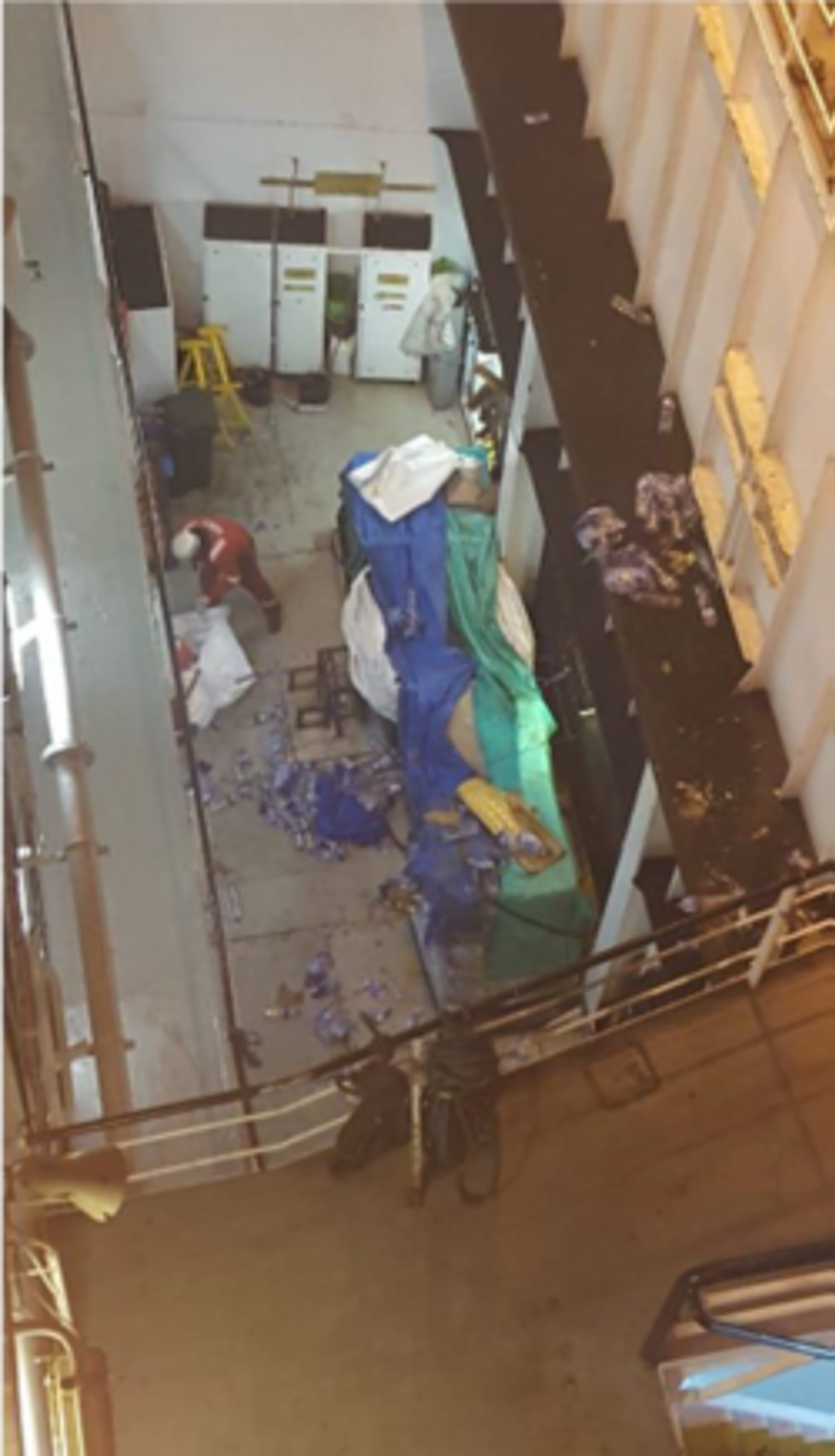Dropped load – water
- Safety Flash
- Published on 28 May 2019
- Generated on 15 February 2026
- IMCA SF 12/19
- 2 minute read
Jump to:
Riggers were attempting to lift a pallet of bottled water between decks of a vessel when the load hit an Intermediate Bulk Container (IBC), causing several packets of water bottles to fall from the load.
What happened?
The water bottles were in packs of 6 (weight per pack = 9 kg) and fell approx. 11 m. This was considered a potential fatality based on the DROPS calculator.
The deck area below the load had been secured and barriered off prior to the lift. There were no injuries.

What went wrong? What were the causes?
- The lift was arguably unnecessary; there were already two pallets of water bottles on the lower deck. Also, alternate means of conducting the lift were not considered.
- The risk assessment/lift plan did not specify a safe method of slinging the load to prevent water from dropping should it collide with vessel structure.
- The risk assessment/lift plan did not identify suitable control measures for the activity of lifting into this deck whilst at sea – there were numerous challenges for lifting operations due to restricted space and visibility, which were not taken into account.
What lessons were learned?
- Review task risk assessments and lift plans for lifting of stores, to ensure hazards, controls, slinging and securing methods are suitable, clear and specific, and with due consideration to the specific controls required to reduce the likely probability of the event reoccurring.
- Review the requirement for and positioning of stores to minimise lifts to be carried out at sea, e.g. sufficient stores loaded alongside or on main deck.
Related Safety Flashes
-
IMCA SF 23/16
13 September 2016
IMCA Safety Flashes summarise key safety matters and incidents, allowing lessons to be more easily learnt for the benefit of the entire offshore industry.
The effectiveness of the IMCA Safety Flash system depends on the industry sharing information and so avoiding repeat incidents. Incidents are classified according to IOGP's Life Saving Rules.
All information is anonymised or sanitised, as appropriate, and warnings for graphic content included where possible.
IMCA makes every effort to ensure both the accuracy and reliability of the information shared, but is not be liable for any guidance and/or recommendation and/or statement herein contained.
The information contained in this document does not fulfil or replace any individual's or Member's legal, regulatory or other duties or obligations in respect of their operations. Individuals and Members remain solely responsible for the safe, lawful and proper conduct of their operations.
Share your safety incidents with IMCA online. Sign-up to receive Safety Flashes straight to your email.